Successful salespeople stand apart from their brethren when it comes to providing the kind of customer service that keeps customers coming back for more — and paying for it. In fact, the salespeople who are on the top of the heap don’t differentiate between sales and service; they see mind-blowing service as a critical enabler to making a sale.
How can a sales organization create a culture where everyone is obsessed with providing incredible service?
It’s not just about what you aspire to be
It’s critical that you have a detailed service strategy in sales — yes, sales needs a service strategy to complement their sales plan — that clearly differentiates your organization from others.
The service strategy must address not only the element of service that your customers treat as their top priority — it could be fast follow up on customer requests, always being available, comprehensive on-site product training — but also the one that your organization uniquely provides.
If your service approach mirrors what your closest competitor does, there is no compelling incentive for people to choose you over others.
It’s not just about technology
The cool technology employed to facilitate customer transactions isn’t the key influencing factor. You may think it’s easier for you to drown your customers in call answering technology when they try to contact you, but they won’t be impressed.
Employing the latest technology to maximize the efficiency of your operations is essential — as long as it doesn’t detract from the experience your customers have when they do business with you.
But if the sole reason for implementing the technology is to drive service costs down, sales results will suffer.
The desired outcome must be to apply technology to both enhance the customer experience AND improve the use of internal resources.
It’s not just about awards and recognition
The awards you win for being recognized as a sales organization that provides “best service” means very little. This recognition is often provided by so-called experts in the service field who claim to have their fingers on the pulse of customers and who conduct surveys to determine the leaders in the service area.
Because they apply their own criteria on what superlative customer satisfaction looks like, your sales organization could be praised for achieving high marks in an element of service your specific customers don’t value as their highest priority — your award is therefore meaningless to your business and won’t help you achieve the sales results you covet.
It’s not just about serving leadership
And it’s not just about having a serving leadership culture that places the emphasis on enabling people to do their job — removing the roadblocks and “grunge” that get in their way.
Yes, serving leaders are critical to developing a successful culture based on delivering mind-blowing customer experiences, but more is required to sustain it in a highly changing and competitive world.
Words are critical to providing amazing service
A brilliant service strategy IS about what is said and not said during the customer engagement process; the Moment of truth when the customer and company are connected for the purpose of satisfying what the customer wants and desires.
The sales service strategy comes alive in that Moment, whether it’s a real-time conversation with a sales rep, a web page view, or an advertising message.
In that Moment, your service strategy is no longer a strategic intent; no longer a piece of paper with words expressed on it. It’s an experience that either renders your intent alive or dead; the truth or a lie — your strategy in that moment degenerates into reality.
Words can hurt, anger and dazzle
Many words characterize the Moment; words that either leave the customer feeling heard, honored, and cared for or feeling berated, belittled, and angry.
This is where most organizations fail. They don’t treat words used in the Moment as a critical element of their strategy that needs as much or even more attention than the service end game intent.
It’s one thing to say “When a mistake is made, recovery will be our #1 priority” and quite another to have people equipped with the right words to manage the recovery Moment when the customer has been screwed over by their organization.
If the wrong words are chosen, the recovery element of your service strategy dies — and your customer trots off to one of your competitors. If the right words are chosen (with the promised action of course) the customer is surprised, delighted, and more loyal than if the OOPS! never occurred in the first place.
Service training must include what to say and what not to say, starting with the latter because the trash words must be expunged and replaced with the words that will support and enable your service end game.
”You should”
Start with “You should”; the one single phrase with so much implied meaning that it can singlehandedly scupper a Moment.
“You should”:
— follow the instructions (you dummy)
— upgrade your software (can’t you read?)
— call the billing department (and don’t bother me)
— have reported the problem when you were covered by your warranty (don’t expect any help now)
— be more understanding (leave me alone!)
— have known our policy (WE control YOU remember?)
— make your choice (can’t you make up your mind?)
“You should” explicitly says that your behavior should be governed by my expectations of you, NOT by your reality.
How can that ever lead to amazing service and sales Moments that leave the customer breathless?
It can’t.
It never will.
Mind your words.



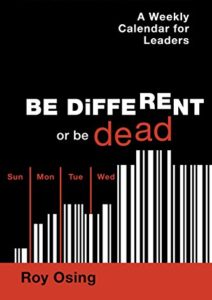
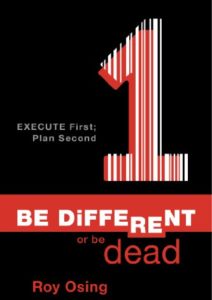
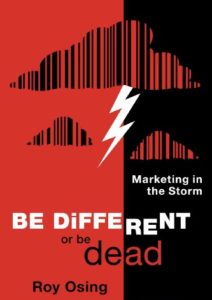
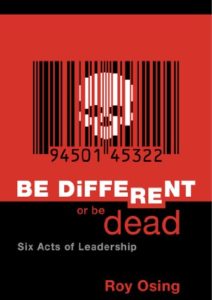
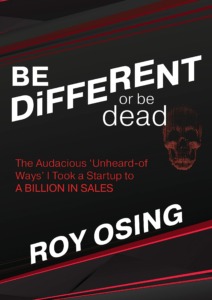
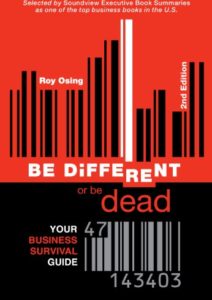
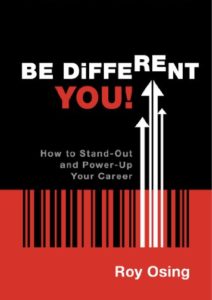











































Comments (12)
Found it very interesting that the most successful salespeople don’t look at service as something separate from sales but more so look at it as a key part of the sales process.
You definitely have to differentiate your service approach by offering something unique or else there will be no reason for the customer to choose you over competitors.
Good point on how those who use technology for service to lower costs will not be successful. It is important for companies to use technology to further enhance their service plan and improve the use of internal resources.
Words are definitely really important when it comes to sales, and organizations should be more conscious of the particular words they use in the sales process. If organizations don’t value specific words that fit the context of the moment, that could lead the customer to feel belittled and angry and disrupt the sales process.
I appreciate the allusion to the changing role of the buyer. While salespeople have historically been the sole source of knowledge about a product, the Information Age has changed this fact entirely. Service quality and augmented benefits may help sway a client, especially when faced with near-identical offerings. I generally agree with the reasoning behind avoiding “you should.” However, a customer may not always know their own needs. An effective salesperson provides solutions to salient problems, but goes further by uncovering issues the customer failed to recognize. I will continue to prod my buyers without sounding confrontational.
I agree with Mr. Roy Osing that a customer should be spoken with positive, caring words that should focus on customer satisfaction. Even though Mr. Osing states that awards are not a good way to help with customer satisfaction. However, I feel like displaying awards shows the customer that the company is acknowledging an employee’s hard work. Also by displaying an award, the company is displaying their most valuable asset. A person that has out performed everyone else and has standards that are satisfactory to the company and customers.
This was a nice engaging article that we could take several points from. The service that the sales person is doing really does sound like a key element in satisfying the customer. One of your more points brought up was the idea of the correct word choice and the more I am learning about sales the more there is an emphasis on the specific point. However, it seems to me that the words a sales person should use is one that should come from the sales person themselves. If we are to train these people in a culture where service is the number one priority and certain words are only to be used, then I believe we would create a company of robots. So I do believe that specific word choice is key, but I also believe that is what makes a salesperson who he is and if we fall to training specific words than this role might actually start to diminish.
I found Roy’s article very interesting due to the idea about strategy sales. It’s a great way to get into the mind of your consumer or even understand where they are coming from and how you can close the sale. I am a little bit confused on the idea that nothing else really matters besides the customer engagement. yes the engagement is key but what is the point if you have nothing driving you to make those sales. Awards/Leadership is a great way to get SalesPeople interested and more engaged in the business, using those methods as motivation helps the Seller continue to do well in closing deals.
I actually liked this article because it points out many things that sometimes are overlooked by salespeople. In sales, transactions are all about the buyer. Salespeople want to make sure they are encouraging the buyer to make a purchase instead of harping them to buy because of reasons that don’t apply to them but to your sales pitch. I agree with the article that words are critical to providing amazing service. One mishap with a certain phrase and you can lose the entire sale. Therefore, it is important to listen to your customer so that you can aim your sales pitch according to their needs. There are definitely words that you should never say in a sales pitch and some that belong perfectly within a sales pitch.
I thought it was interesting when awards and recognition were mentioned. I often see organizations priding themselves on these. These awards are not always accurate and it is important for organization to not lean on these awards for success.
Focusing on your rhetoric when having a sales conversation is another thing I hadn’t thought about before reading this article. The power behind “you should” became” outlined. This type of behavior isn’t very appealing when trying to have a conversation with someone. I think noticing the way people speak when making a sale is something everyone could learn and apply to even a regular conversation.
I found this article incredibly eye-opening as well as a refresher on past tips I have received in prior sales-geared courses during my time in college. It goes to show and stresses the importance of creating a customer-centric experience from the Moment they are introduced to one’s company up until the end when there’s a purchase, deal, etc. In regards to that specific Moment and the buyer’s entire process thereafter, I do agree that it is colossally important to be careful about the types of words and/or phrases one provides when trying to create a buyer/seller relationship. Being customer-centric involves making the customer/buyer feel appreciated, understood, and valued. If done so in an efficient and effective manner, the types of words a seller utilizes can ultimately close a deal and thereby generating success for themselves and their company.
There were two main things that I got out of this article. The first is that actions speak louder than words. Having a structured plan is a key first step to getting sales team that is ready to perform and meet goals, but that all means nothing if they don’t accomplish their tasks. The second thing is that words can very easily have a negative impact if not chosen carefully. They can be used for great encouragement and recognition, but it is easy for words to have a negative connotation. A leader and strong individual clearly knows the difference and is aware of the power that a simple phrase can have.
This article was very insightful. I think in the digital age especially the significance of words and vocabulary can be lost. What i took from the article is that you have to remember that sales is about people. It’s not about money, technology or being flashy. Customers will respond to people who care about people. No matter what aspect or level of business you’re in, i believe if you keep people and their interests in mind you will be successful. Mr. Osing made some great points that all great salespeople should keep in mind.
After reading the article, there is some stuff I agree with and some I have to question. When it comes to beating out the competition, I feel like it is best to have a comparative advantage over them. You want to be sure to differentiate from others and be better than them. When it comes to awards, I feel like the most important award is a college degree and I feel like that is something important to your business when they want to hire you. If you are the top seller in your company and you get an award, it gives you credibility and shows customers that you are trusted and work hard to make a sale. As for the rest, I would say it is pretty accurate.
Many pieces of this article stood out to me, but the sections on awards and the emphasis on words were the most interesting to me. Companies do like to focus on past awards and recognition’s they have received but once these are received they fail to evaluate how their business serves their customers. They get caught up in the title and these titles can convince the company that it is succeeding and prevent the company from reflecting on where it can improve. The second section that stood out was of course the piece on the importance of words. I think in our world today people are often careless with the things they say or even the articles and pieces of information they repost and share on social media. People don’t think about the long-term effects of these words or the way they may be received by others. Sales people are known to be confident and self-assured, and sometimes their confidence can be blinding and overpowering in their sales tactics. Being cautious about the words used in your sales approach is key to actually making the sale.